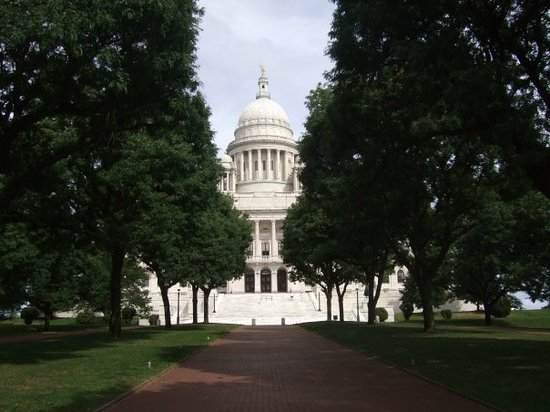-
Go
Pages
Members
Categories
Quicklinks
Events
-
Under the Dome

At the State House
As was stated last week, it seems the budget will be the focus of attention for the next month and a half followed by voting on the budget in November.
This week, the House Finance Committee will meet Wednesday, 4:00 p.m. to take testimony surrounding the Governor’s request to amend Article 8 (Tax Article of the budget). The amendment seeks to decouple Rhode Island tax law from the federal excess loss deduction found in 26 U.S.C. section 461(1)(1)(B) in tax years 2018-2020. While disallowing a deduction in FY20 and FY21, the amendment would allow for 20% of the “disallowed” deduction to be taken each year in 2021-2025. If this change is not included in the FY2021 budget, the federal allowance is estimated to cost the state $18.78 million in FY20 and $10.3 million in FY21. The change would delay the financial hit to the state to $5.8 million in FY22 through FY26. The meeting will be live-streamed at http://ritv.devosvideo.com/show?video=cd679c40105a. No in-person testimony will be taken at the hearing. If you wish to testify, you can send written testimony to cobrien@rilegislature.gov or request to be heard verbally by sending an email to the same address – include the bill number (Article 8 Amendment), your name, For/Against, phone number to be reached for providing testimony and affiliation (if any).
Carbon Pricing Study Update
Last Friday, two consultants provided an update on the carbon pricing study that is being undertaken as a result of legislation passed in 2019. Three agencies – RI Department of Environmental Management, RI Department of Transportation, and RI Office of Energy Resources - are working together on this project. The consultants announced that they will be modeling six different scenarios under the study that take into account different carbon pricing points, the inclusion of varying levels of incentives to the public, and governments to use certain technologies and varying levels of rebates (direct checks to individuals and/or businesses).
Program Incentives would include items like the purchase of electric vehicles, free RIPTA fares, electric RIPTA bus purchases, electric vehicle charging station installations, air and ground source heating pump installations in buildings, and bike infrastructure creation.
The modeling will include a low price of $9 per metric ton by 2030 (which would likely bring RI to 45% below 1990 emission levels), to a high price starting at $88 per metric ton (likely bring RI to 71% below 1990 by 2030). The high price point came from the federal American Opportunity Carbon Fee Act, a US legislative proposal touted by RI US Senator Sheldon Whitehouse. The lowest model would start at $9 per metric ton in 2030 and go to $25 per metric ton by 2050. The highest model (AOCFA) would start at $88 per metric ton in 2030 and go to $282 per metric ton in 2050.
What was very clear is that electric vehicles and electric heating of buildings are key to the models achieving the targets set in state statute, keeping in mind that the targets are “goals” and are not hard requirements enforceable by the courts.
The Consultants – Synapse and CADMUS – hope to have the final report completed in November. They have yet to add economic and health issues to the models. They acknowledged that the modeling will assume a regional approach with neighboring states on board. Without the regional approach, it is difficult to predict the health effects because the migration of GHG would still exist, and economic predictions become more difficult as businesses and individuals can move across borders.Tell a Friend
-
-
-
Chamber Events

